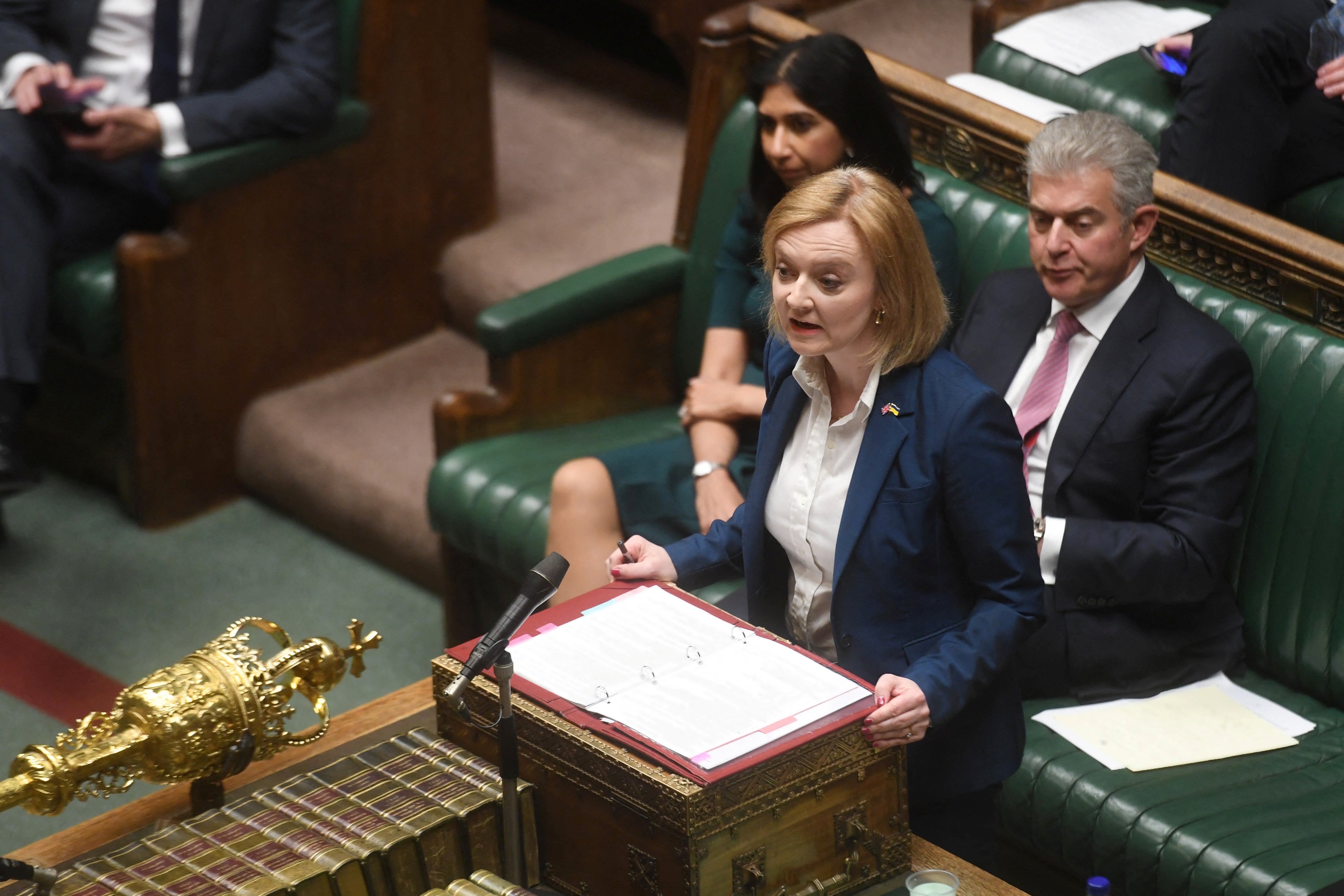Liz Truss is making UK power – not fighting poverty – the principle of overseas aid
The foreign secretary is asking us to believe it is possible to copy China’s ruthless approach – but in a nice way, writes Rob Merrick


David Cameron said it was for “people in desperate need”, while Theresa May called it “a promise to the poorest in the world” – but no longer will either be the bedrock of overseas aid spending.
In a little-noticed revolution, Liz Truss is turning decades of UK policy on its head, making the ruthless motives of Xi Jinping – rather than the idealism of Bob Geldof – her model for the aid budget.
Of course, the foreign secretary did not put it quite like that, when she unveiled her international development strategy, but it is crystal clear that is the new thinking.
Aid has been a means to fight poverty, rebuild shattered lives after disasters and develop the fragile economies of poor nations – but now it will be another tool to exert UK power abroad.
As Ms Truss herself put it, bold as brass: “In an increasingly geopolitical world, we must use development as a key part of our foreign policy.”
It was a clear reference to China’s vast “belt and road” programme, which is delivering better infrastructure to more than 100 countries – in return for alarming control by their puppet masters in Beijing.
Of course, Ms Truss promised the UK would never – heaven forbid! – adopt the “economic coercion” of that “malign actor” China and there will be no “tied aid”, MPs were told.
Or, as General Melchett put it in Blackadder Goes Forth, there are German spies (“Filthy Hun weasels fighting their dirty underhand war!”) and then there are British spooks (“Brave heroes risking life and limb for Blighty!”).
Now, no one would suggest Conservative-run Britain is on a par with communist China – but let’s not be so naive as to believe we will be “the good guys” in all of this.
Sarah Champion, chair of the Commons international development committee, nailed it when she protested: “Supporting the poorest in the world should not be conditional on a trade deal or agreeing to investment partnerships.”
Crucially, the strategy will also see much more aid allocated directly by the UK, rather than through international bodies such as the United Nations on emergency relief.
This, of course, follows the manifesto-busting cut to spending only 0.5 per cent of national income on aid – with no date for returning to 0.7 per cent, despite that being a legal commitment.
And the Department for International Development (Dfid) was axed, giving us the absurdity of Ms Truss being in charge of aid strategy while weighed down by the twin wars in Ukraine and with the EU over the Northern Ireland protocol.
The cuts and the death of Dfid created far more headlines – but the shift to focusing on “power not poverty” could be more significant than either.






Join our commenting forum
Join thought-provoking conversations, follow other Independent readers and see their replies
Comments